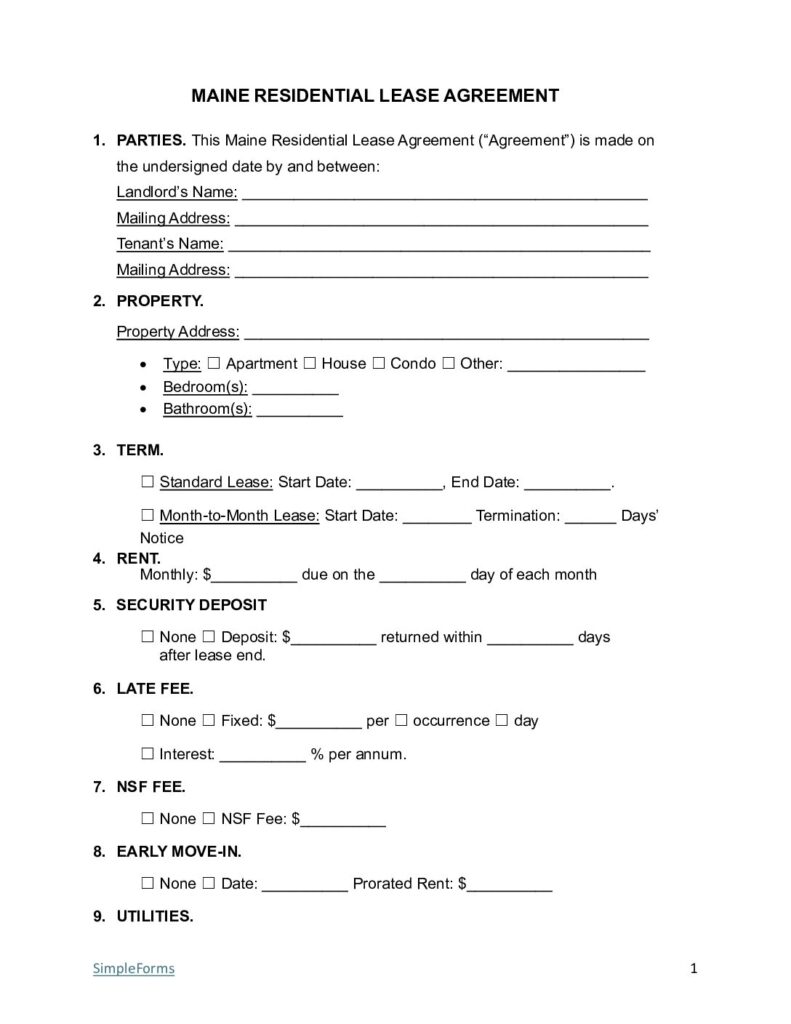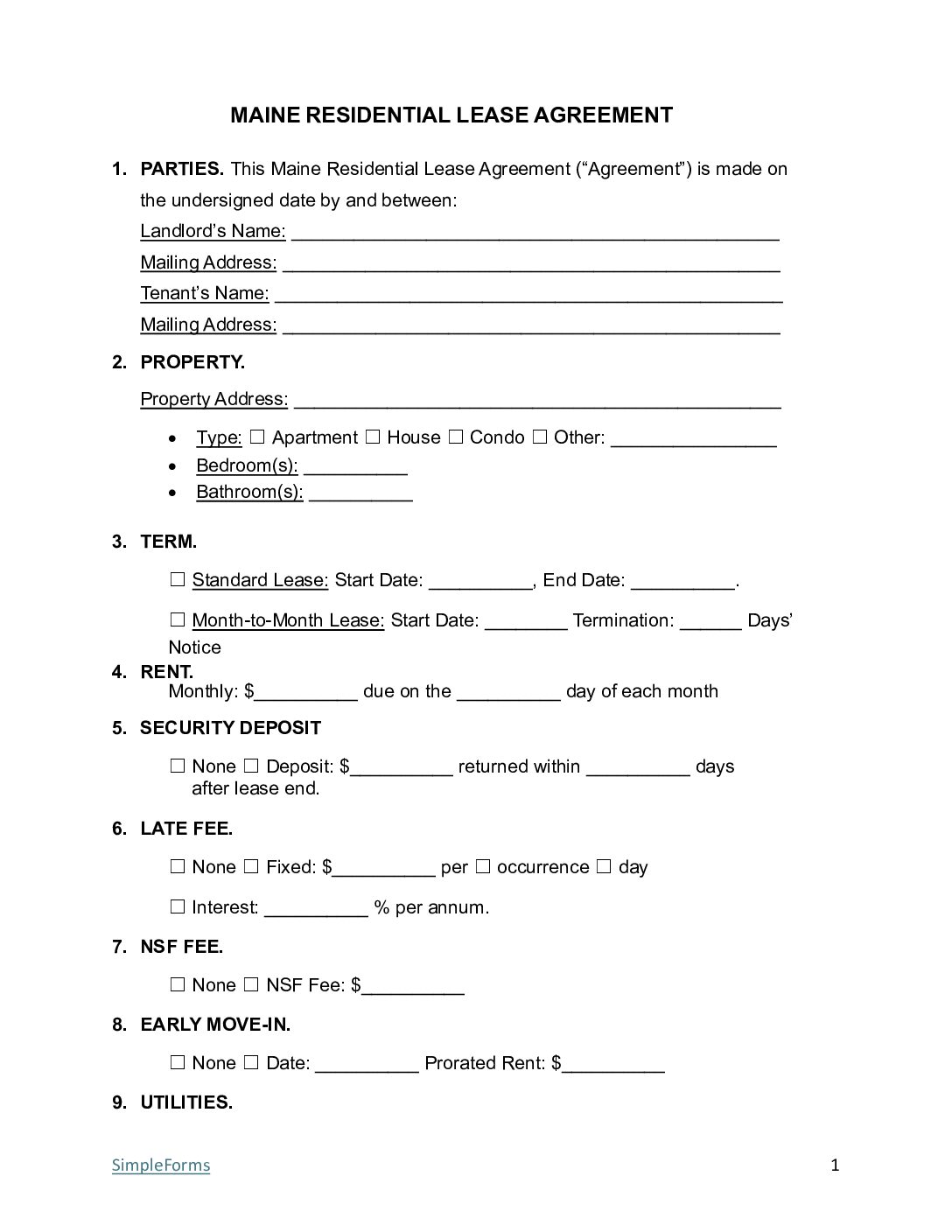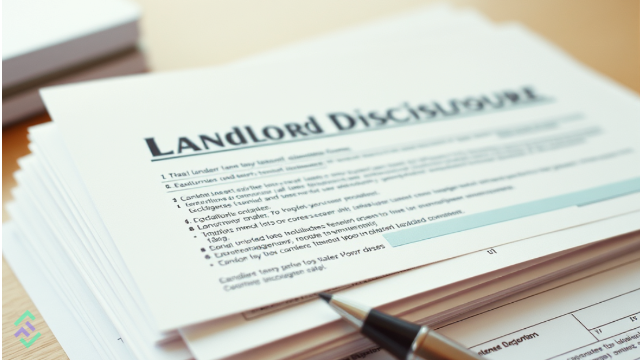Rental Application Form – Property Managers and Landlords use this document to get written consent from Tenants before signing the Maine residential lease agreement form.
Required Landlord / Tenant Disclosure Forms in Maine (8)
- Bedbug Disclosure – Tenants must be told about past bedbug issues or treatments (if any). [1]
- Common Area Utilities – Tenants are not responsible for the utilities in shared areas unless agreed upon in writing in the residential lease agreement form. [2]
- Energy Efficiency Details – Landlords must disclose the energy efficiency details to Tenants paying utilities. [3]
- Lead-Based Paint Disclosure Form and EPA Brochure – For properties built before 1978, the Landlord must disclose lead-based paint. [4]
- Radon Disclosure Form – Tenants must be informed about radon gas risks on the property. [5]
- Tenant Rights (Portland Only) – Landlords in Portland must provide information on Tenant rights.
- Security Deposit Location – Landlords must inform Tenants the information where the security deposit is held. [6]
- Smoking Policy – Landlords must disclose the property’s smoking policy. [7]
Security Deposit Laws and Returning Requirements
Rent Payment Laws and Late Fees
Breaking the Maine Residential Lease Agreement
Tenants can terminate the Maine residential lease agreement with no penalties by one or more of the following circumstances:
- Active Military Service – Tenants who enter active military service after signing a lease are protected under the federal Servicemembers Civil Relief Act (SCRA). If a tenant is called to active duty or receives a permanent change of station, they have the right to terminate their lease early. In order to break the lease under this protection, the tenant must provide the landlord with written notice and a copy of the military orders. The lease will terminate 30 days after the next rent payment is due.
- Victims of Domestic Violence, Sexual Assault, or Stalking
- High Radon Levels – Under Maine law, landlords are required to disclose the presence of radon gas in rental properties. If radon levels are found to be above 4.0 picocuries per liter (pCi/L)—the level considered hazardous by the Environmental Protection Agency—tenants may be entitled to terminate the lease without penalty. The landlord is required to mitigate the radon within a certain timeframe or else the lease can be terminated. Tenants must provide notice and evidence of the radon levels if they choose to end the lease for this reason.
- Unsafe living conditions – Tenants have a legal right to live in a safe and sanitary residence. If the rental unit becomes uninhabitable due to serious maintenance issues, health hazards, or code violations, the tenant may be allowed to break the lease without penalty. Examples include persistent mold, lack of heat or water, severe pest infestations, or structural problems. The tenant should first notify the landlord in writing and give them a reasonable amount of time to make necessary repairs.
- Landlord breaks the implied warranty and covenant of habitability – Maine law imposes a legal obligation known as the warranty of habitability, which requires landlords to maintain rental properties in a condition fit for human habitation. This includes ensuring that the premises are weather-tight, equipped with working plumbing and heating systems, free of vermin, and compliant with all health and safety codes. If a landlord fails to uphold this responsibility, and the living conditions become unacceptable, the tenant may terminate the Maine residential lease agreement contract.


